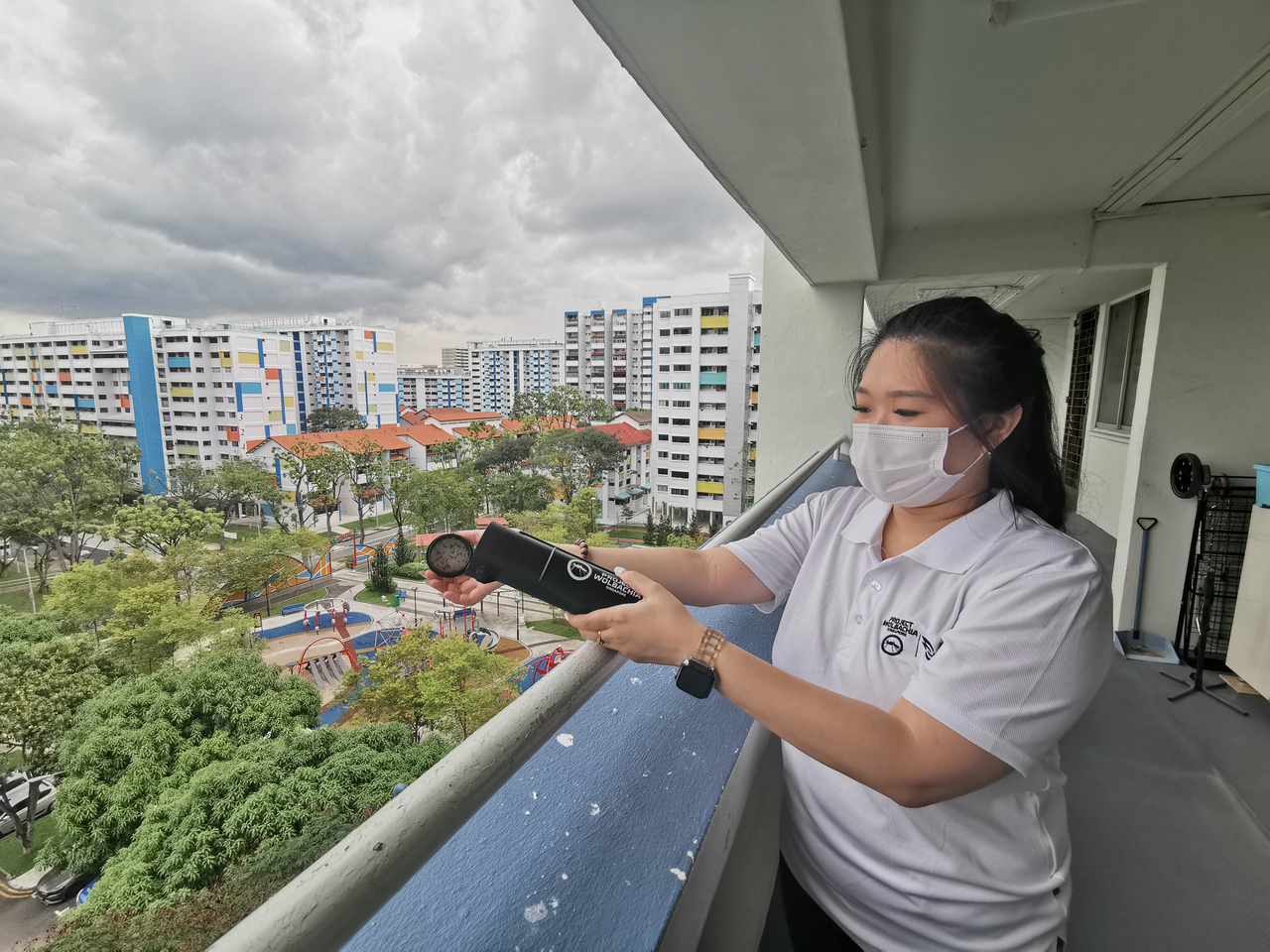Release of mosquitoes as part of Project Wolbachia sparks alarm among some residents
Sign up now: Get ST's newsletters delivered to your inbox

An NEA officer releasing male Aedes aegypti mosquitoes infected with the Wolbachia bacteria at a housing block.
PHOTO: NEA
SINGAPORE - The release of mosquitoes to combat dengue, as part of a project in various estates, has caused some alarm among residents who did not know about the move.
Known as Project Wolbachia, it involves releasing male mosquitoes infected with the Wolbachia bacteria to control the population of Aedes aegypti mosquitoes, which spread dengue.
"One pre-school administrator who was unaware of the start of the project had reported that the school suddenly saw swarms of mosquitoes, thereby leading to some degree of fear and alarm among the children," said Ms Yeo Wan Ling (Pasir Ris- Punggol GRC).
Speaking in Parliament on Wednesday, she added that some residents had given feedback on an increased number of mosquito bites and, according to one of them, this had led to skin sensitivity and rashes.
In response, Senior Parliamentary Secretary for Sustainability and the Environment Baey Yam Keng said the National Environment Agency (NEA) had engaged the community on Aug 30 prior to the release of mosquitoes in Punggol, such as through door-to-door distribution of letters to residents.
He added that more targeted and direct engagements will be explored, such as through door-to-door engagements to increase community awareness.
Mr Louis Chua (Sengkang GRC) said he also received similar feedback from residents on the increasing prevalence of mosquitoes, which he presumed to be a result of these male Wolbachia mosquitoes being released.
Hence, he had wanted to participate in community engagement efforts, which were conducted through the People's Association, such as by taking part in mosquito release activities at the Wolbachia study sites. But he was unable to do so.
Mr Chua asked the ministry how much it believes in garnering the support of MPs in its community engagement efforts.
In response, Mr Baey said NEA works with the community and grassroots to carry out these outreach programmes, as with all the various government initiatives.
"In particular, for Project Wolbachia, we need to work with town councils as well because of some of the operational issues, and because the town council maintains some of the general cleanliness of the estate so as to reduce mosquito breeding grounds... So we'll continue to work on both fronts," he added.
Project Wolbachia is currently deployed at 13 sites, including Punggol and Sengkang.
Mr Baey noted that at the start of Wolbachia-Aedes releases in new areas, NEA typically receives more feedback relating to mosquitoes, though residents become accustomed to the mosquitoes over time.
NEA's data has shown that after a few months of releases, the population of the Aedes aegypti mosquito falls to very low levels, decreasing by up to 98 per cent, and bites from these mosquitoes also dropped significantly, said Mr Baey.
This is seen in the fall in dengue cases by up to 70 per cent that was observed in study sites with at least one year of mosquito releases.
"However, as the Wolbachia-Aedes technology does not affect other species of mosquitoes, residents may still experience some bites from such mosquitoes," he added.


